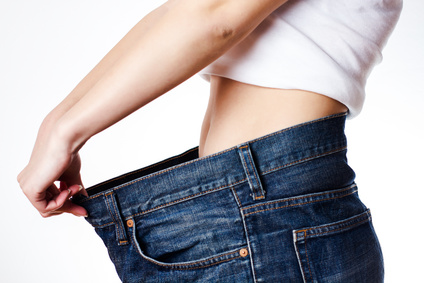(While I have always emphasized that real success in weight loss is achieved only by learning how to manage behavior like my program teaches, I have always advocated the legitimate use of medications to correct neurotransmitter disregulation that can heighten appetite, making self-control more difficult than it has to be. Here is an interesting report, first published in Science Daily.)
Group Health researchers have found that bupropion (marketed as Wellbutrin) is the only antidepressant that tends to be linked to long-term modest weight loss.
Previously, Group Health researchers showed a two-way street between depression and body weight: People with depression are more likely to be overweight, and vice versa. These researchers also found that most antidepressant medications have been linked to weight gain.
Prior research on antidepressants and weight change was limited to one year or shorter. But many people take antidepressants–the most commonly prescribed medications in the United States–for longer than a year. So for up to two years the new study followed more than 5,000 Group Health patients who started taking an antidepressant. The Journal of Clinical Medicine published it: “Long-Term Weight Change after Initiating Second-Generation Antidepressants.”
“Our study suggests that bupropion is the best initial choice of antidepressant for the vast majority of Americans who have depression and are overweight or obese,” said study leader David Arterburn, MD, MPH. He’s a senior investigator at Group Health Research Institute (GHRI), a Group Health physician, and an affiliate associate professor in the University of Washington (UW) School of Medicine’s Department of Medicine. But in some cases, an overweight or obese patient has reasons why bupropion is not for them–like a history of seizure disorder–and it would be better for them to choose a different treatment option.
Study findings
“We found that bupropion is the only antidepressant that tends to be linked to weight loss over two years,” Dr. Arterburn said. “All other antidepressants are linked to varying degrees of weight gain.”
After two years, nonsmokers lost an average of 2.4 pounds on bupropion–compared with gaining an average of 4.6 pounds on fluoxetine (Prozac). So those who took bupropion ended up weighing 7 pounds less than did those on fluoxetine.
Unsurprisingly, that difference wasn’t seen in people who smoked tobacco. Bupropion is often used to help patients stop smoking. So smokers who take bupropion are likely to be trying to quit–and coping with the weight gain that often accompanies attempts to quit smoking.
Who should try which antidepressant?
“A large body of evidence indicates no difference in how effectively the newer antidepressants improve people’s moods,” said Dr. Arterburn’s coauthor Gregory Simon, MD, MPH, a Group Health psychiatrist, GHRI senior investigator, and research professor in psychiatry and behavioral sciences at the UW School of Medicine. “So it makes sense for doctors and patients to choose antidepressants on the basis of their side effects, costs, and patients’ preferences–and, now, on whether patients are overweight or obese.”
Bupropion should be considered the first-line drug of choice for people who are overweight or obese, Dr. Simon said. But patients should consult their doctor about which medication is right for them, before making any changes, including starting, switching, or stopping medication.
Story Source:
The above post is reprinted from materials provided by Group Health Research Institute. Note: Materials may be edited for content and length.




